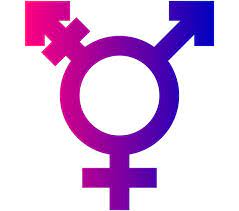Navigating the journey of gender transition is a deeply personal experience, and for many transgender men (FTM), testosterone therapy plays a crucial role in aligning their physical bodies with their gender identity. However, there may come a time when individuals choose to stop testosterone therapy for a variety of reasons—be it health concerns, personal reflection, or seeking alternative paths in their transition. Understanding what this decision entails is essential for managing expectations and preparing for the changes that may follow. This article aims to provide insight into the decision to go off testosterone, what to expect physically and emotionally, and the importance of seeking medical guidance during this significant transition.
Understanding the Decision to Stop Testosterone Therapy
Deciding to stop testosterone therapy is often a complex and highly individualized choice. Many transgender men begin testosterone to alleviate gender dysphoria and facilitate a more authentic self-expression. However, circumstances can change, leading individuals to rethink their therapy. Some may feel a sense of completion in their transition, while others might experience anxiety about potential health risks associated with long-term testosterone use. Each person’s journey is unique, and it’s essential to reflect on personal motivations and circumstances when considering this decision.
Moreover, societal pressures and evolving personal beliefs may influence one’s decision to discontinue testosterone. For some, the conversation surrounding non-binary identities and gender fluidity has opened new avenues for self-acceptance. Understanding the internal and external factors that contribute to this decision can help individuals navigate their journey with clarity and confidence. Seeking advice from trusted friends, family, or professionals can also provide valuable perspectives as one contemplates this significant change.
What to Expect When You Go Off Testosterone
When an individual decides to stop testosterone, the body will gradually begin to revert to its pre-testosterone state, resulting in a series of physical changes. This process can take time, and the timeline for each person will differ based on various factors, including the duration of use, dosage, and individual physiology. It’s not uncommon for individuals to notice changes in body fat distribution, skin texture, and hair growth patterns as their hormone levels adjust. Some may also experience shifts in libido and sexual function, which can further impact one’s self-perception and relationship dynamics.
It’s essential to understand that these changes may not occur uniformly or predictably. While some individuals may experience changes quickly, others may find that their bodies take longer to adjust. Being aware of this variability can help set realistic expectations and alleviate feelings of anxiety or disappointment during the transition. Connecting with others who have gone through similar experiences can also be beneficial, providing reassurance and shared understanding during this often-uncertain time.
Physical Changes: What Happens to Your Body?
As testosterone therapy is discontinued, the body undergoes a variety of physical transformations. One of the most noticeable changes may involve fluctuations in body hair growth; individuals may find that facial and body hair becomes less pronounced. Additionally, skin may soften and lose some of its oiliness, leading to changes in overall skin appearance. Furthermore, muscle mass may decrease, which can influence physical strength and body composition. Weight distribution may also revert to pre-testosterone patterns, potentially affecting self-image and body confidence.
Furthermore, changes in reproductive health can also be significant. Individuals may notice alterations in their menstrual cycles, which could resume after stopping testosterone if they had previously experienced amenorrhea. This can bring about a wide range of feelings, from relief to confusion. It’s crucial to monitor these changes and maintain open communication with healthcare providers to navigate any challenges or concerns effectively.
Emotional and Mental Effects of Stopping Testosterone
The decision to stop testosterone isn’t just a physical one; it often carries emotional and psychological implications as well. Many individuals may experience a rollercoaster of feelings, from relief at having made the decision to anxiety about undergoing physical changes. It’s also common for feelings of dysphoria to resurface as hormone levels shift. The emotional landscape can be complex, and it’s important to practice self-compassion during this period of adjustment.
Moreover, individuals may find themselves grappling with questions about their identity and how they fit into the broader conversation about gender. Some may experience increased vulnerability or heightened sensitivity during this time. It’s vital to recognize that these feelings are valid and to seek support from friends, family, or mental health professionals who understand the nuances of gender identity and transition. Creating a robust support network can help ease the emotional burden and foster resilience during this transitional phase.
The Importance of Medical Guidance During Transition
When considering discontinuing testosterone therapy, consulting a healthcare professional is essential. Medical guidance can provide insight into potential health risks and the effects of stopping testosterone on both physical and mental health. A knowledgeable provider can help create a personalized plan to monitor changes and address any concerns that may arise during the transition. Regular check-ups can ensure that individuals are safely managing their health in conjunction with their evolving identity.
Additionally, healthcare professionals can assist in managing any potential complications or medical issues that may arise from stopping testosterone. Whether it’s addressing changes in mood, libido, or physical health, having medical support can significantly enhance the transition experience. Individuals should feel empowered to ask questions and voice their concerns, ensuring that they receive tailored care that aligns with their individual needs.
Coping Strategies for Life After Testosterone
Adapting to life after stopping testosterone can be a challenging process. One effective way to cope is to establish a routine that promotes physical and emotional well-being. Engaging in regular exercise can help maintain physical fitness while boosting mood and self-esteem. Finding activities that foster a sense of community, such as joining a support group or engaging in hobbies, can also provide invaluable emotional support during this transitional period.
Mindfulness practices, such as meditation or journaling, can help individuals process their emotions and navigate the complexities of their identity. Connecting with others who have had similar experiences can also foster a sense of belonging and understanding. Embracing self-care and nurturing a positive mindset can significantly ease the transition as individuals learn to navigate life without testosterone.
Rebuilding Your Identity Post-Testosterone
As individuals move forward after stopping testosterone, they may find it necessary to reassess and rebuild their identity. This period can be both liberating and challenging, as some may feel a sense of freedom while others may struggle with uncertainty. It’s essential to recognize that identity is fluid and can evolve over time. Engaging in self-reflection and exploring new interests or avenues for self-expression can be instrumental in shaping a renewed sense of self.
Rebuilding one’s identity may also involve re-engaging with the community, redefining connections, or even exploring new social circles. Embracing authenticity and allowing oneself the grace to experience the ebb and flow of identity can lead to profound personal growth. It’s important to remember that everyone’s journey is unique, and embracing that individuality can foster resilience and empowerment along the way.
Resources and Support for Your Journey Ahead
As you navigate life after stopping testosterone, there are numerous resources available to support your journey. Online forums, local support groups, and LGBTQ+ organizations can provide a wealth of information and community connections. Engaging with others who share similar experiences can be immensely reassuring and can offer insights into coping strategies, medical advice, and emotional support.
Additionally, consider exploring mental health services that specialize in gender identity and LGBTQ+ issues. Speaking with a counselor or therapist can help process emotions, navigate identity complexities, and develop robust coping mechanisms. Remember, you are not alone in this journey, and there are many avenues for support and guidance to help you thrive in your post-testosterone life.
Deciding to stop testosterone is a pivotal moment in a person’s journey and can evoke a multitude of feelings and changes. By understanding what to expect physically and emotionally, seeking medical guidance, and utilizing available resources, individuals can navigate this transition more effectively. Embracing the complexity of identity and allowing oneself to experience the full range of emotions is crucial for personal growth and self-acceptance. As you embark on this new chapter, remember that your journey is uniquely yours, and there is a supportive community ready to walk alongside you.


